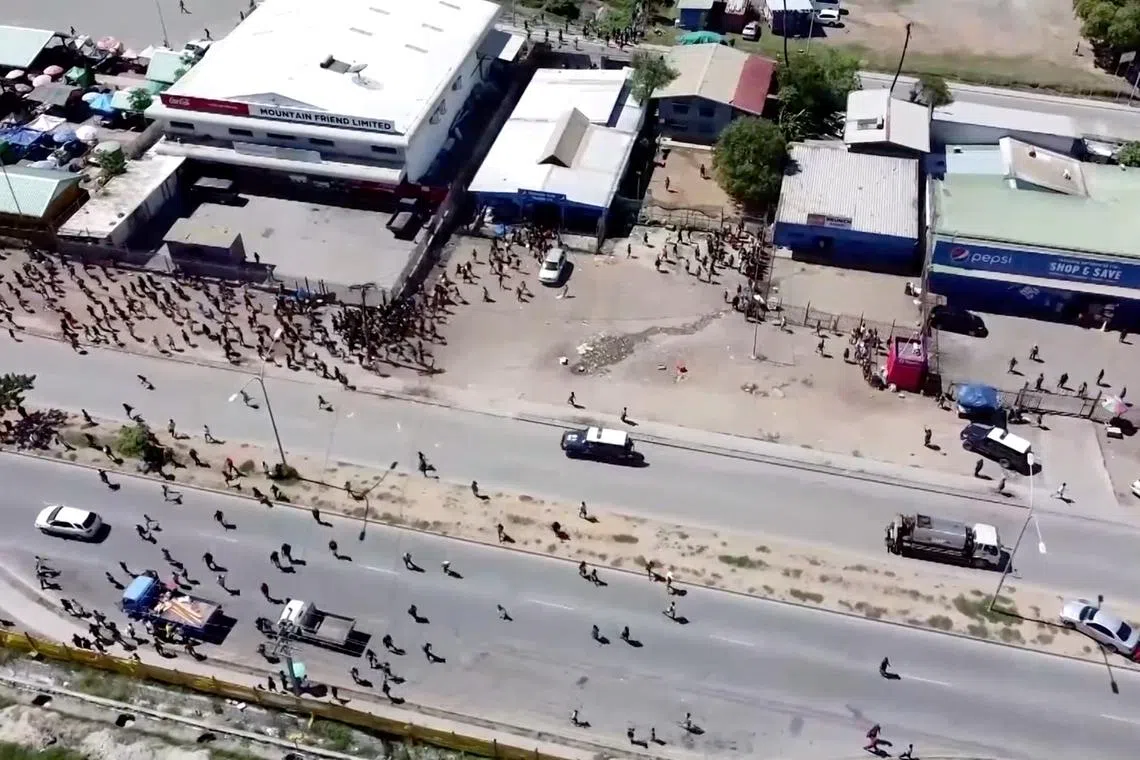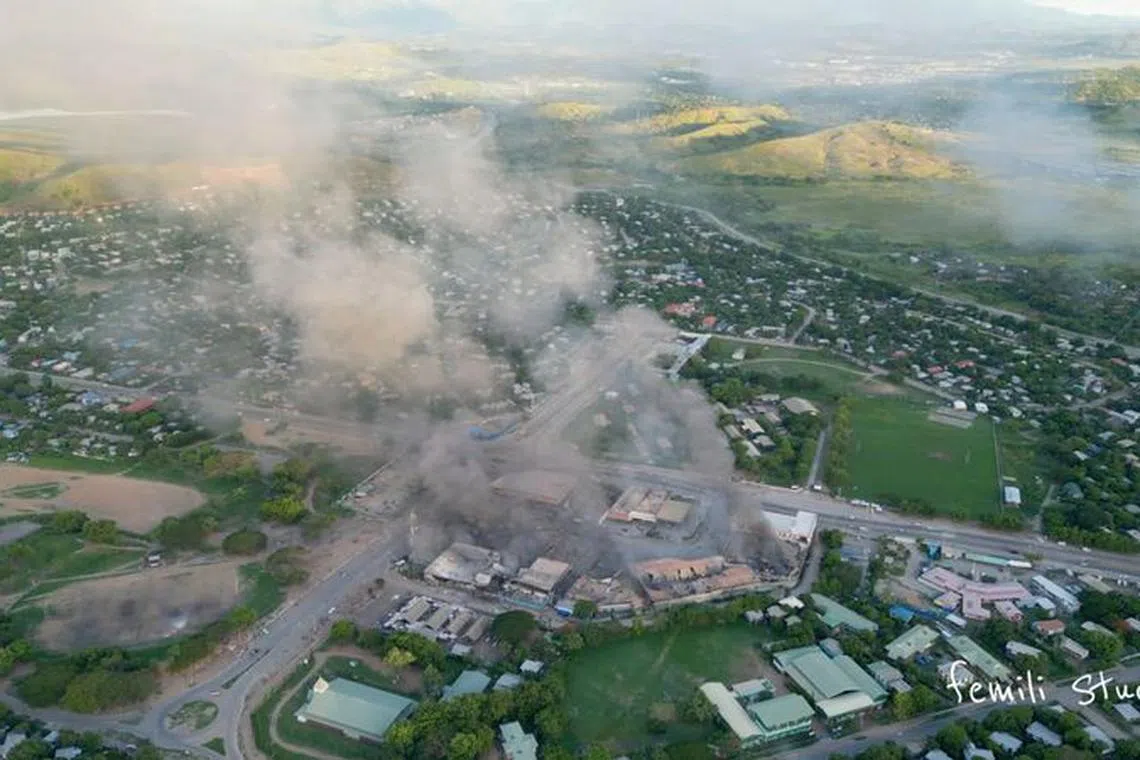Papua New Guinea declares state of emergency after 16 die amid rioting
Sign up now: Get ST's newsletters delivered to your inbox

Nine people died in the rioting in Port Moresby, and seven were killed in Lae, in the north of Papua New Guinea.
PHOTO: REUTERS
Follow topic:
SYDNEY - Papua New Guinea’s Prime Minister declared a state of emergency on Jan 11, suspending government and police officials, after 16 people were killed in rioting in the Pacific island nation.
A police and public sector protest on Jan 10 over a pay cut that officials blamed on an administrative glitch had descended into lawlessness.
Television footage showed thousands of people in the streets of the capital Port Moresby, many of them carrying what appeared to be looted merchandise, as black smoke billowed over the city.
Nine people were killed in the rioting in Port Moresby and seven were killed in Lae, in the north of the gold and copper-mining country, Australian state broadcaster ABC reported on Jan 11, citing police.
Prime Minister James Marape told a news conference he had suspended the country’s chief of police and top bureaucrats in the finance and treasury departments while the government conducts a review of the cause of the riots.
“There was evidence of organised rioting that took place,” he told reporters, adding that the review would ensure “we secure democracy, we secure rule of law”.
Some 1,000 military personnel were on standby to ward off further unrest, he said.
Violence in the capital subsided on Jan 11, with the government flying in extra police officers to maintain order.
The United States embassy in Port Moresby said the police had returned to work, but that tensions remained high.
“The relative calm can change at a moment’s notice,” it said in a statement, adding that it had received reports of violence in several other areas of the country.
Several Chinese citizens were lightly injured, with Chinese-owned stores subjected to vandalism and looting, said China’s embassy.
Australian Prime Minister Anthony Albanese said his country’s high commission was monitoring the situation, and Canberra had not received any requests for help from Papua New Guinea, which it regularly supports in policing and security.

Buildings burning during a protest in Port Moresby on Jan 10 over a pay cut for police that officials blamed on an administrative glitch.
PHOTO: REUTERS
“We continue to urge calm at this difficult time. We haven’t had any requests from the PNG government at this time but... our friends in Papua New Guinea, we have a great relationship with them.”
The police in Papua New Guinea have struggled with a surge in violent crime over the past year. Mr Marape has said boosting security would help attract foreign investment in the country’s gold and copper resources.
The police went on strike on the morning of Jan 10 after discovering a reduction in their pay packets.
The government circulated messages on social media denying that a new tax had been imposed on the police, and Mr Marape said any administrative error that had caused the pay shortfall would be fixed.
An official told local radio FM100 on Jan 10 that without the police, the city had “lost control”. REUTERS

